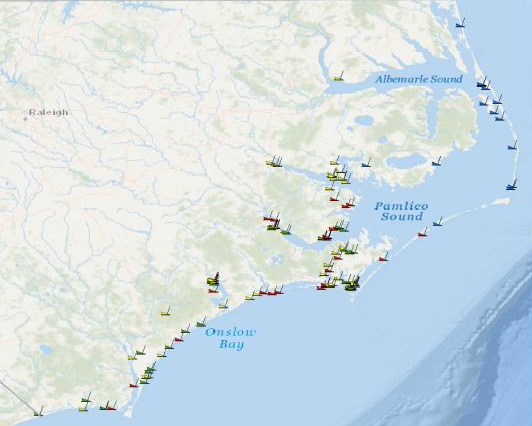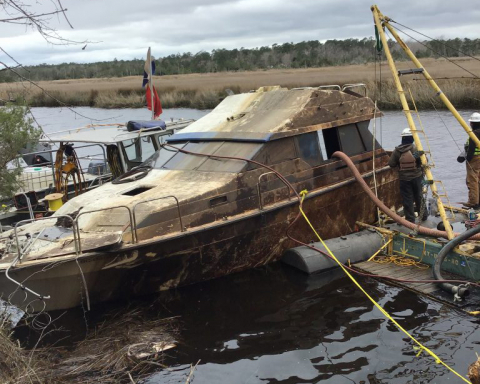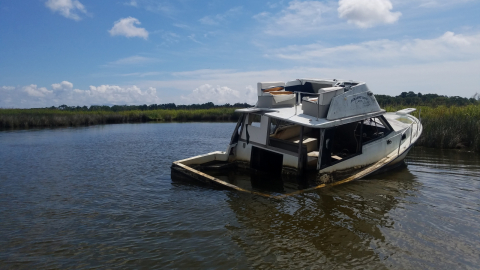Guest blog by: Michael Flynn, Coastal Advocate, and Sarah Bodin, Coastal Restoration Specialist, of the North Carolina Coastal Federation
The roar of four generators was a sound that Sarah Bodin, Coastal Restoration Specialist with the North Carolina Coastal Federation (federation), never thought she would be so happy to hear. The Commercial Diving Division crew under Moran Environmental Recovery (MER), along with a local subcontractor, were working diligently on a sailboat, Rolling on the River, that became lodged on top of a piling during Hurricane Florence. More than two and a half years later, with its bow still up in the air, the din of the generators announced they were ready to address the widespread issue of abandoned and derelict vessels (ADVs) littering the coast. For the town of Oriental, North Carolina, it meant another step forward in moving on from the devastation caused by Florence.
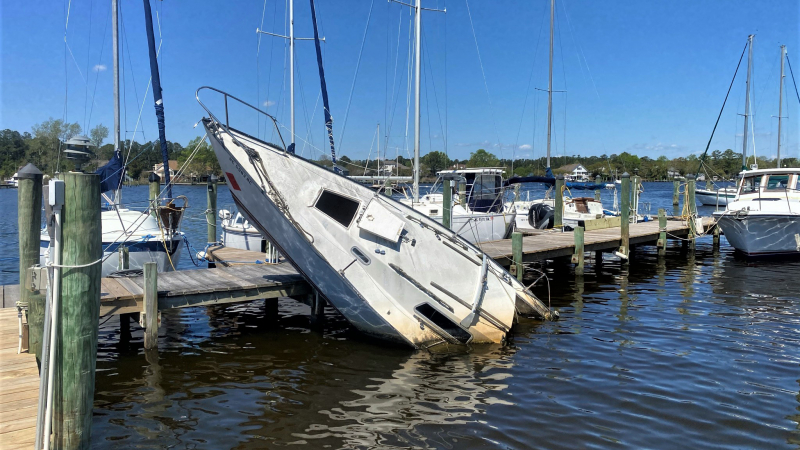
Rolling on the River had been abandoned by its owner after the storm. With no funding, or rights for its removal, it had become a fixture on the landscape of Oriental, along with several others. This sailboat was just one of hundreds of vessels damaged during Hurricane Florence and left abandoned or derelict along the coast. These vessels persist in the environment as marine debris and pose environmental, health, and economic risks to the coast.
For the first time ever, North Carolina is mounting a comprehensive effort to address and remove ADVs that blight the coast. Federal, state, and local partners, the Division of Coastal Management (NCDCM), the Wildlife Resources Commission (NCWRC), the federation, and multiple funders, along with support from the North Carolina General Assembly, have come together to take the first important steps.
Building on the United States Coast Guard’s existing documentation of derelict vessels in the aftermath of Hurricane Florence, NCDCM, NCWRC, and the federation have assessed and documented a subset of abandoned vessels targeted for removal. With funding support from NOAA’s Marine Debris Program, the National Fish and Wildlife Foundation, and the United States Department of Agriculture Natural Resources Conservation Service, the federation will oversee the removal of over 80 vessels from North Carolina’s central and southeastern regions and from the Albemarle-Pamlico estuary and Outer Banks. Removal of these vessels is of the utmost importance in order to clear navigational hazards and reduce any remaining pollution impacts on oyster reefs, submerged aquatic vegetation, coastal wetlands, and other important coastal habitats.
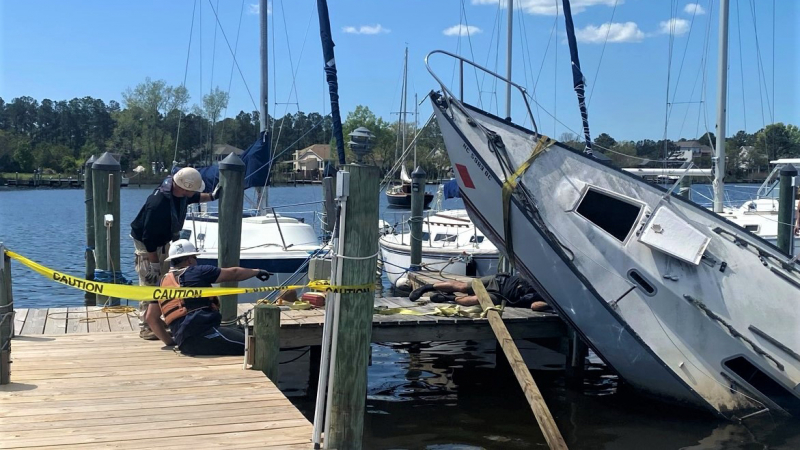
Back on the Oriental waterfront, the crew has spent the past four hours cutting the piling, securing the sailboat with winches, patching the hull, and slowly lowering the bow of Rolling on the River down into the water. As the final steps of the tedious removal are completed, Sarah and the other observers hold their breath. Over the sounds of the winch cables, they hear a splash from the hull as it’s released and dropped to the water, and everyone erupts into a chorus of clapping. With the crew covered in sweat and the smell of marsh mud pumped from the vessel still lingering in the air, there are smiles on everyone’s faces. Rolling on the River is finally free from its precarious perch on the pilings and ready to be hauled from the marina. “Now comes the easy part,” says one of the MER crew members.
The Rolling on the River removal is among the first of 2021 that will be overseen by the North Carolina Coastal Federation. The federation is also partnering with NCWRC to engage legislative staff and members in promoting a permanent abandoned and derelict vessel program. This important step forward was made possible after Governor Cooper approved final legislation that updated authorizing language to allow NCWRC to remove storm-related vessels littering the coast. To learn about the progress of this work and the federation’s vision of a coast that is free of marine debris, visit the federation’s website.

